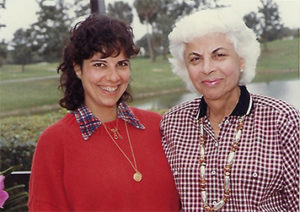The need for long term care doesn’t think about your gender, your financial success or even your age. A life-changing medical crisis can barrel into your life when you least expect it, like an unexpected car accident. Or, it can sneak up on you, introducing subtle symptoms over time, barely noticeable. We see this, for example, with Alzheimer’s disease in people even in their 40s. What we do know is that single women are more in need for long term care insurance (LTCi) than others.
The Special Case for LTCi and Single Women
The two major factors driving the need of LTCi by women are longevity and caregiving.
It probably won’t surprise you to read that women live longer than men. More than two-thirds of Americans over the age of 85 are women. And 80% of centenarians are women. It’s no wonder most residents in nursing homes are women.
At the age of 75, almost 70% of women are single (widowed, divorced or never married). This means they typically live alone, without help with their daily tasks. And because of their historically lower earnings, single women at this age have significantly lower income from Social Security and other retirement plans.
Women are also more likely to be providing care for family members. 75% of people providing home care are women and typically a daughter caring for her mother. On average, she will devote 20 hours each week taking care of her mother. However, 1 in 6 caregivers will provide 40+ hours each week.
Older Women and Poverty
A report compiled by Justice in Aging last year found that out of the 7.1 million older adults that live in poverty, nearly two-thirds of them are women.
The report points to a number of issues that impact the incidence of poverty among women (You can click here to read the full report).
- Wage Gap and Low Paying Jobs — 70% of workers earning $10/hour or less are women.
- Caregiving — Caring for children and/or parents takes time away from paid employment.
- Higher Health Care Costs — A 65-year old woman will spend $47,000 more in health care than a 65-year old man.
- Domestic Violence — Affects physical and mental health, so it keeps women in poverty.
- Wealth Gap — The Wage Gap reduces many women’s ability to accumulate wealth over their lifetimes.
If you are a woman, you are more likely to need medical care in your later years. Even if that care doesn’t begin until your 70s or 80s. If you have spent years taking care of parents and/or children, this is the time to start thinking about taking care of yourself.
Click here to receive a free, no-obligation quote for your own LTCi policy.




 Thanks for visiting my site! I like hearing from you!
Thanks for visiting my site! I like hearing from you!